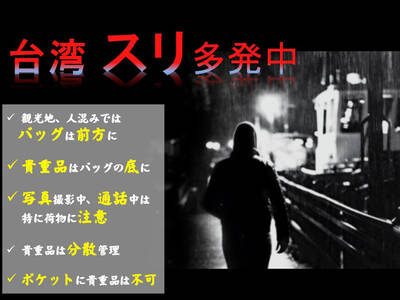The Taipei City Government has been inundated by requests to preserve old buildings after the promulgation of the amended Cultural Heritage Preservation Act (文化資產保存法), the Taipei Department of Cultural Affairs said on Tuesday last week.
The amended law has led to an increased number of parties contacting the department with conservation queries, Taipei Deputy Commissioner of Cultural Affairs Tien Wei (田瑋) said, adding that his department has not been given the extra resources to handle them.
The new law imposes fewer restrictions on heritage status applications submitted by those who do not own the property. In addition, commemorative buildings and public buildings that have 50 years or more of history are qualified to be considered as heritage sites, according to the new law, he said.
The changes resulted in a flood of conservation requests, including sites that the city had previously reviewed and rejected as being unworthy of the status or unviable as a cultural resource, he said.
“The new law will lead to an increase of heritage sites on a massive scale, but the central government has not given local governments the money, staff or legal authority needed for the job,” Tien said.
“The central government should amend the law, giving local governments more resources in the same way that they do for government-led urban renewal projects. Otherwise, cultural heritage conservation will become so much empty talk,” he added.
The Taipei City Government is charged with protecting 166 existing cultural heritage sites and the new law allows cases that were thought to be settled to be reopened, he said.
Up to 600 sites that were submitted during the tenure of former mayor Ma Ying-jeou (馬英九) could be up for reconsideration, in addition to new applications filed by private citizens, Tien said.
“This department does not have the money or staff to deal with all of this. Just dealing with the old law exhausted the department’s regular annual funding for heritage preservation. We still do not have the money to pay for the expert reviews of heritage sites that were conducted last month. How will we enforce the law?” he asked.
The Ministry of Cultural Affairs and the municipal government should both consider giving the Taipei Department of Cultural Affairs more resources to process the additional work, Tien said.
Privately owned heritage sites are often difficult to refurbish or manage because of the complicated status of their ownership and legal disputes among family member, situations that the law does not provide clear guidelines for, he said.
The Cultural Heritage Preservation Act should be amended to address these situations, Tien said.
The law should also oblige private owners of heritage sites who have sold their property to for-profit entities to return part of the proceeds or ownership of the heritage structure to the city so that the city can pay for the expenses incurred in reviewing and maintaining the sites, he said.
The implementation of the new law needs fine-tuning to resolve the problems that the city is currently experiencing, Tien said.

GENSLER SURVEY: ‘Economic infrastructure is not enough. A city needs to inspire pride, offer moments of joy and foster a sense of belonging,’ the company said Taipei was named the city with the “highest staying power” in the world by US-based design and architecture firm Gensler. The Taiwanese capital earned the top spot among 65 cities across six continents with 64 percent of Taipei respondents in a survey of 33,000 people saying they wanted to stay in the city. Rounding out the top five were Vietnam’s Ho Chi Minh City (61 percent), Singapore (59 percent), Sydney (58 percent) and Berlin (51 percent). Sixth to 10th place went to Monterrey, Mexico; Munich, Germany; Sao Paulo, Brazil; Vancouver; and Seoul. Cities in the US were ranked separately, with Minneapolis first at

The Japan-Taiwan Exchange Association has cautioned Japanese travelers to be vigilant against pickpockets at several popular tourist spots in Taiwan, including Taipei’s night markets, the Yongkang Street area, Zhongshan MRT Station, and Jiufen (九份) in New Taipei City. The advisory, titled “Recent Development of Concerns,” was posted on the association’s Web site under its safety and emergency report section. It urges travelers to keep backpacks fully zipped and carried in front, with valuables placed at the bottom of the bag. Visitors are advised to be especially mindful of their belongings when taking photos or speaking on the phone, avoid storing wallets and

Scoot announced yesterday that starting in October, it would increase flights between Taipei and Japan’s Narita airport and Hokkaido, and between Singapore and Taipei. The low-cost airline, a subsidiary of Singapore Airlines, also said it would launch flights to Chiang Rai in Thailand, Okinawa and Tokyo’s Haneda airport between December and March next year. Flights between Singapore and Chiang Rai would begin on Jan. 1, with five flights per week operated by an Embraer E190-E2 aircraft, Scoot said. Flights between Singapore and Okinawa would begin on Dec. 15, with three flights per week operated by Airbus A320 aircraft, the airline said. Services between Singapore

ENDORSING TAIWAN: Honduran presidential candidate Nasry Afura said that Honduras was ‘100 times better off’ when it was allied with Taipei The Ministry of Foreign Affairs yesterday said it would explore the possibility of restoring diplomatic relations with Honduras based on the principle of maintaining national interests and dignity. The ministry made the remarks in response to reporters’ questions regarding an article titled: “Will Taiwan Regain a Diplomatic Ally?” published in The Diplomat on Saturday. The article said Honduras’ presidential election in November could offer Taiwan the chance to regain an ally, as multiple candidates have promoted re-establishing diplomatic relations with Taiwan. Honduras severed diplomatic ties with Taiwan in March 2023 in favor of Beijing, but since switching its diplomatic recognition,